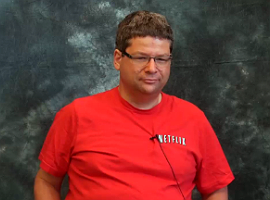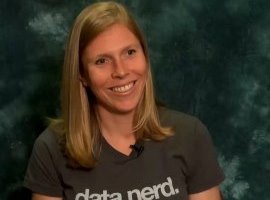InfoQ Homepage QCon Software Development Conference Content on InfoQ
-
Al Tsang on Using JavaScript to Build Web APIs and the Node.js Fork
Al Tsang talks about using Node.js to build Web APIs, the emergence of an API economy, the convergence between an API Gateway and an ESB, and Node Forward Group's decision to fork Node.

-
Jeff Lindsay on Best Practices for Working with Containers and Docker
Jeff Lindsay explains the difference between virtualization and containers, what Docker brings to the table, best practices for using containers and what to avoid, and much more.

-
Chris Richardson Discusses CQRS and Event Sourcing via Docker
Chris discusses the rise of CQRS and Event Sourcing as a solution for all domains. With the advent of Docker, applications that manage complex domains can be built tested and deployed in minutes. Chris talks about the reasons for choosing a CQRS and Event Sourced solution as well as how the addition of Docker can help an organization embrace Continuous Delivery by using existing tools.

-
Jerome Louvel on Web APIs with Restlet and APISpark
Jerome Louvel talks about Web APIs, the Restlet framework and his latest venture APISpark

-
Azat Mardan on NodeJS and Express
Azat Mardan, popular blogger and author on NodeJS, discusses some of the benefits of choosing NodeJS as a platform. He talks about why startups should consider NodeJS and Express as a platform over other popular options like PHP. He also talks about why more and more enterprises are choosing NodeJS as a platform and some of the benefits as well as the challenges that they may face.

-
Jessica Kerr on Java vs. Scala, Property Based Testing, and Diversity in IT
Jessica Kerr discusses the differences between coding in Java, Scala and Clojure, the charm of autogenerated test data, and diversity in the IT industry.

-
Interview with Erin Schnabel on the Liberty Profile
Erin Schnabel, developer lead of the WebSphere Liberty Profile, spoke to Alex Blewitt at QCon New York about the modular architecture behind the Liberty Profile, and what benefits this has brought both to end users and the developer team. She also highlighted how the the transition from monolithic to modular started with the configuration and broke down dependencies between services.

-
Aish Fenton on Machine Learning at Netflix
Aish Fenton explains how machine learning is used at Netflix for recommendations but also for many more applications.

-
Dianne Marsh on Engineering Velocity at Netflix
Dianne Marsh explains Netflix' approach to managing development teams, how to avoid over-managing them, fostering responsibility and engineering velocity.

-
Nico Bevacqua on Writing Modular JavaScript
In this interview, Nicolas Bevacqua talks about how he initially got into programming professionally as a DotNet developer and how he eventually made the transition to focusing primarily on Node.js development. He discusses his passion for writing open source projects for the JavaScript developer community and some of the projects that he is most passionate about.

-
Roy Rapoport on Canary Analysis at Netflix
Roy Rapoport explains the concept of canary analysis and how Netflix uses it to deploy software to its internal systems.

-
Ashley Puls on the How and Why of Java Bytecode Manipulation
Ashley Puls explains Java bytecode manipulation: reasons for manipulating bytecode, libraries that help, how NewRelic is using it, and more.
